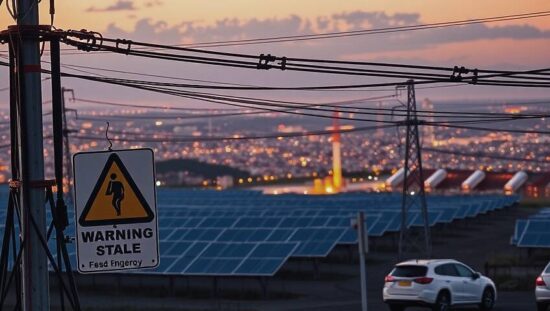Energy Providers and the Power Industry Urge Immediate Measures to Mitigate the Risk of Excessive Solar Power. Following the Record-Breaking Installation of Photovoltaic Systems, “a danger is now looming without proper control, threatening the stability of the grids” said Kerstin Andrea, the head of the German Association of Energy and Water (BDEW), in an interview with the Neue Osnabrücker Zeitung.
“To integrate the growing share of renewable energy in a cost-effective and economically sensible manner, it is essential that the amendment to prevent power generation peaks is implemented before the end of the legislative period” said Tim Meyerjürgens, the CEO of the German power grid operator Tennet Germany, in the same interview. “This is a crucial condition to maintain the energy transition and ensure grid stability and economic efficiency at the same time.”
The German Parliament’s Committee on Energy and Climate Protection is set to discuss the red-green draft bill on the control of solar power installations on Wednesday. The outcome is uncertain, as the bill is likely to be passed by a narrow margin. The last plenary session before the general election is scheduled for February 11.
The reason for the appeals: In times of abundant sunshine and low energy demand, too much energy is being generated. “Energiespikes, regardless of future grid expansion, increasingly pose significant risks for grid stability” said Andrea. “Without the possibility of specifically controlling generators in critical situations, the need to temporarily disconnect entire grid sections from generators and consumers to stabilize the system looms.”
The term “brownouts” is often used to describe this scenario. For the sake of system stability, it is “urgently necessary that the measures contained in the draft bill are implemented before the general election” emphasized Andrea.
While the massive growth in renewable energy is, in and of itself, a welcome development that brings the country closer to climate neutrality, said Meyerjürgens, “the installations are not yet controllable and do not react to market prices. This puts a strain on the power grid and incurs unnecessary costs.” Central measures, such as more incentives for direct marketing and a stronger control of the installations, are therefore “absolutely necessary.





